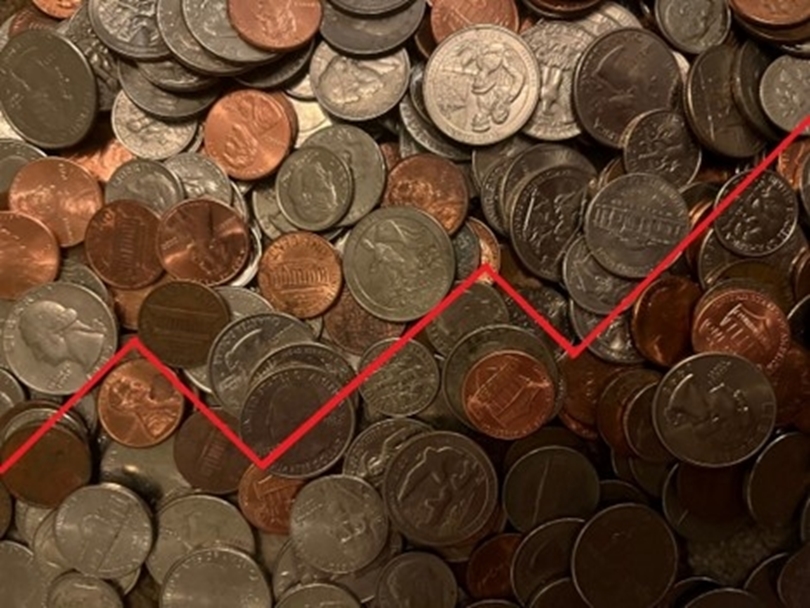Crazy Economy

When talking about the economy all the major experts are predicting a recession. For the first time in a while, we have had two quarters of negative growth in the GDP, or gross domestic product, which is usually a bad sign of things to come. However, the job market remains strong, and the unemployment rate continues to be low. Companies are having trouble filling positions and now is a great time to be looking for a better work opportunity. For many people it does not feel like a time of recession.
GDP
GDP or gross domestic product is a common term used by economists to measure a countries economic output. It is calculated based on private consumption, private investment, government investment, government spending, and exports and imports. Every college economics student should know the standard formula: GDP=C+I+G+(X-M). This equation is important because it allows experts to track and analyze the size of the economy. Although it is a crucial factor in determining weather an economy is in recession it does not include everything. There are more complex equations that account for inflation, also known as real GDP, and economic theory does state that unemployment should decline if GDP grows, that is not always the case. Over the last two quarters GDP has declined and unemployment has declined as well. This is unusual but the two factors are not completely dependent on each other as the current situation of the economy shows. This leads to the question of whether we are in a recession; two negative quarters of GDP would say yes but other factors disagree.
Job Market
The unemployment rate in the United States had a major spike in April of 2020. This spike was directly related to the COVID-19 shut down. Employers were not sure when business would return to normal and to protect the company long term well being they began to lay off employees. No one expected what would happen next. When the country began to reopen, the economy saw a huge boom. Consumers were ready to spend money and companies began to flourish. Delivery services, retail stores, and other businesses saw huge sales gains, and this created a supply issue. Ultimately, there was not enough product to go around. To keep up with the needs of the new economic climate companies began hiring and the hiring has not slowed down. Companies are now offering better pay and benefits to attract workers because they are in desperate need of people. All of this has led to a decline in the unemployment rate and that declining trend has continued. The value of a quality workforce has gone up and this is not typical of a period of recession. Usually, when GDP falls, companies are trying to cut labor costs to save money and that can lead to a raise in unemployment that is typically expected during a recession. The fact that this has not happened is one of the reasons why people question whether we are in a true recession.
Inflation
A major topic of conversation when discussing the economy is inflation and the value of money. The value of money can be defined as how much purchasing power money can buy. Inflation diminishes the value of money. For example, if a loaf of bread is costs $5 instead of $4 is the bread worth more or is the dollar worth less. There are countless articles and papers written on the topic of the value of money, but most people tend to think about the raising costs as inflation. When the product supply was delayed because of the COIVD shut down companies ran out of items to sell and had to rush to get more. This resulted in said companies spending more than they used to and created the situation we are currently in. It caused inflation because the cost of transportation and production rose. The government has tried to raise interest rates to slow spending to halt inflation. Time will tell if this will be effective. We also must consider that the market will eventually stabilize for other reasons. Eventually demand will slow and sales will decline. This could lead to an excess of supply which may result in sales and cheaper prices. This is clearly industry specific and a timetable for this can be extremely difficult to predict. It is also possible that demand does not decline. Only time will tell. All we can do is hope that the central bank continues to make smart decisions with interest rates and the economy will stabilize.
Every year and every era have its own challenges. The economy has been extremely difficult to predict the last several years and things like GDP, the Value of Money and inflation has it affected all. There is never a definite answer when predicting the future of the economy. Even during a recession, a company can succeed and during an economic boom companies can fail. The best advice for any investor or entrepreneur is to never put your eggs in one basket. In other words, diversify and hope for the best.














































